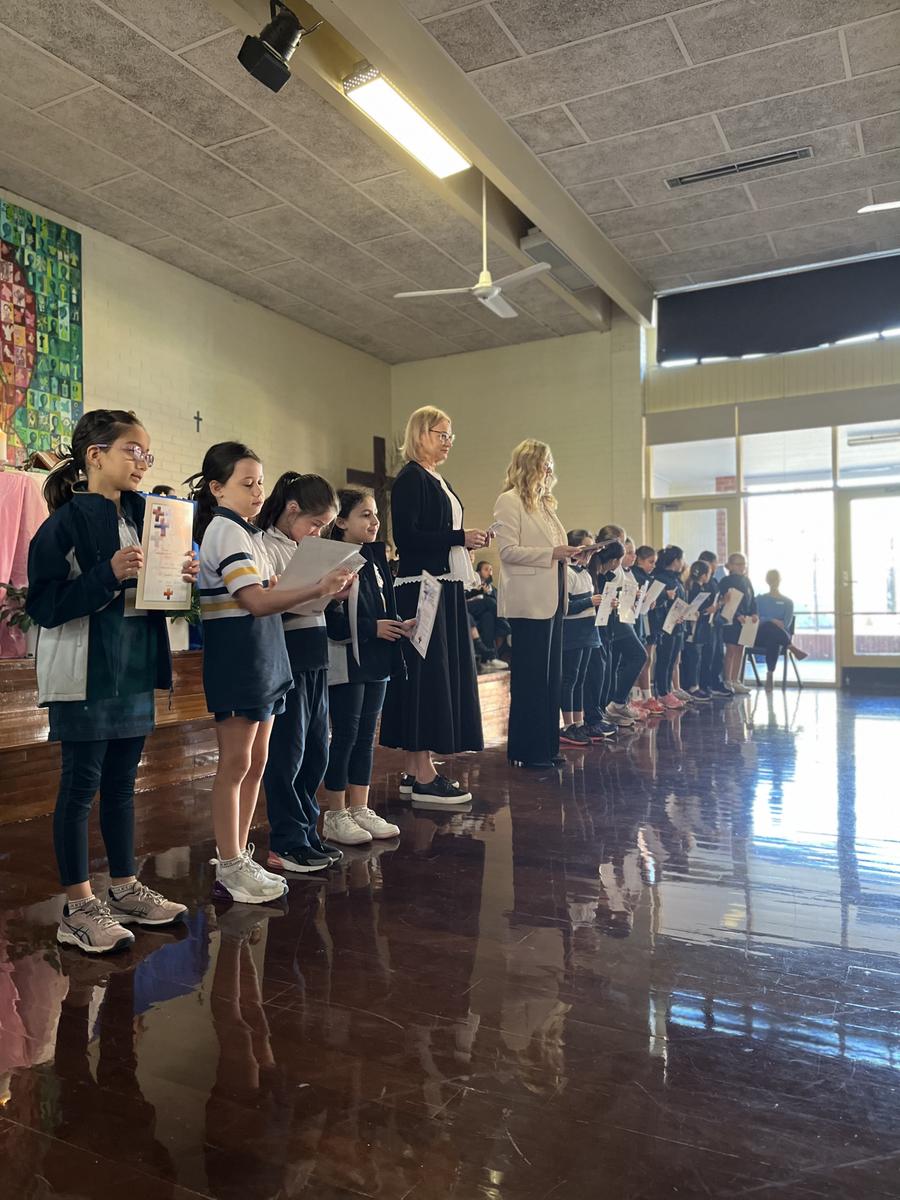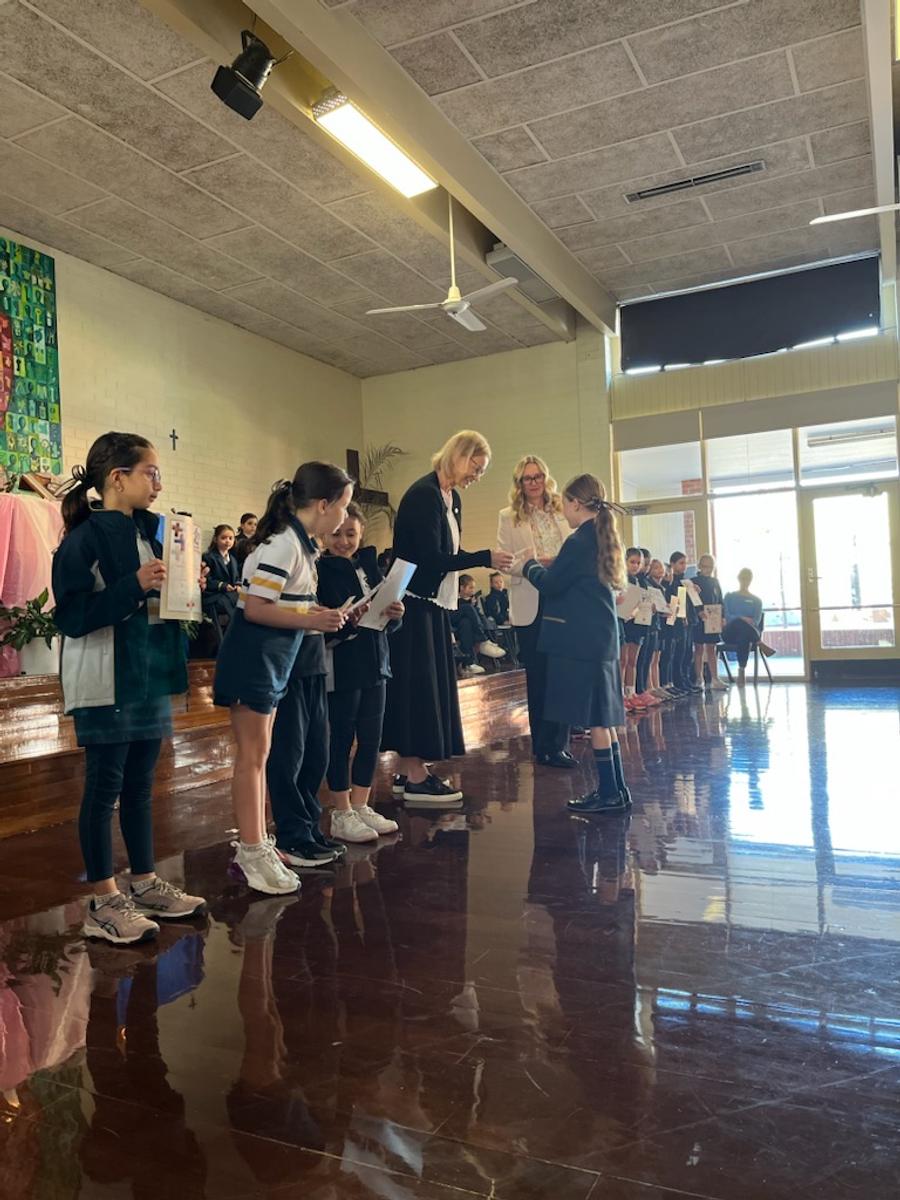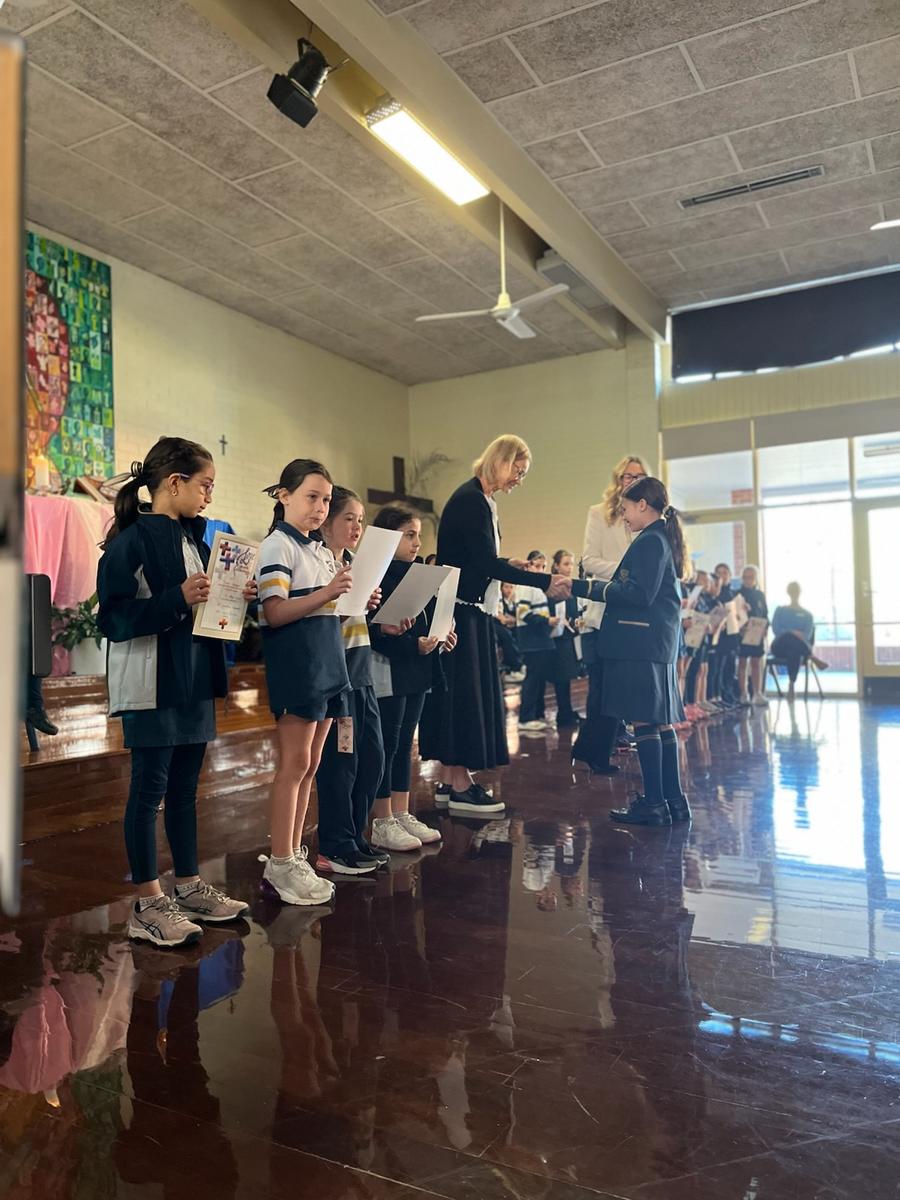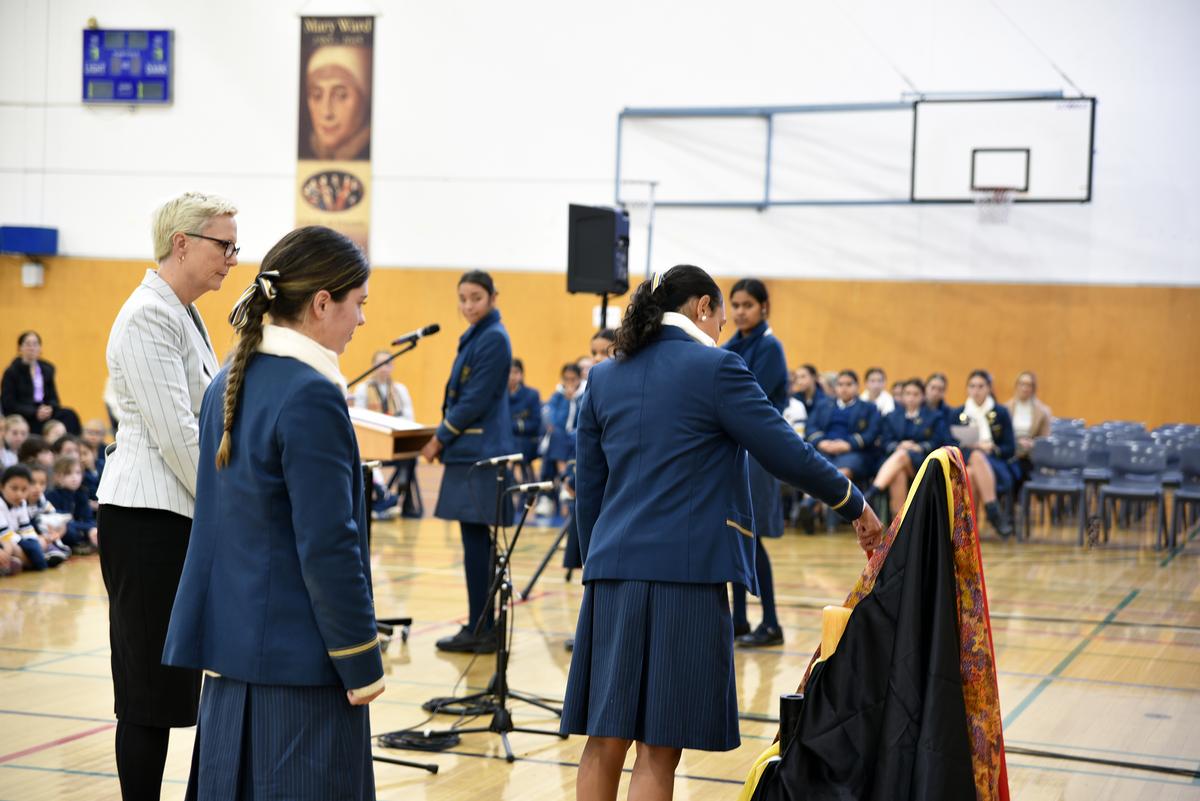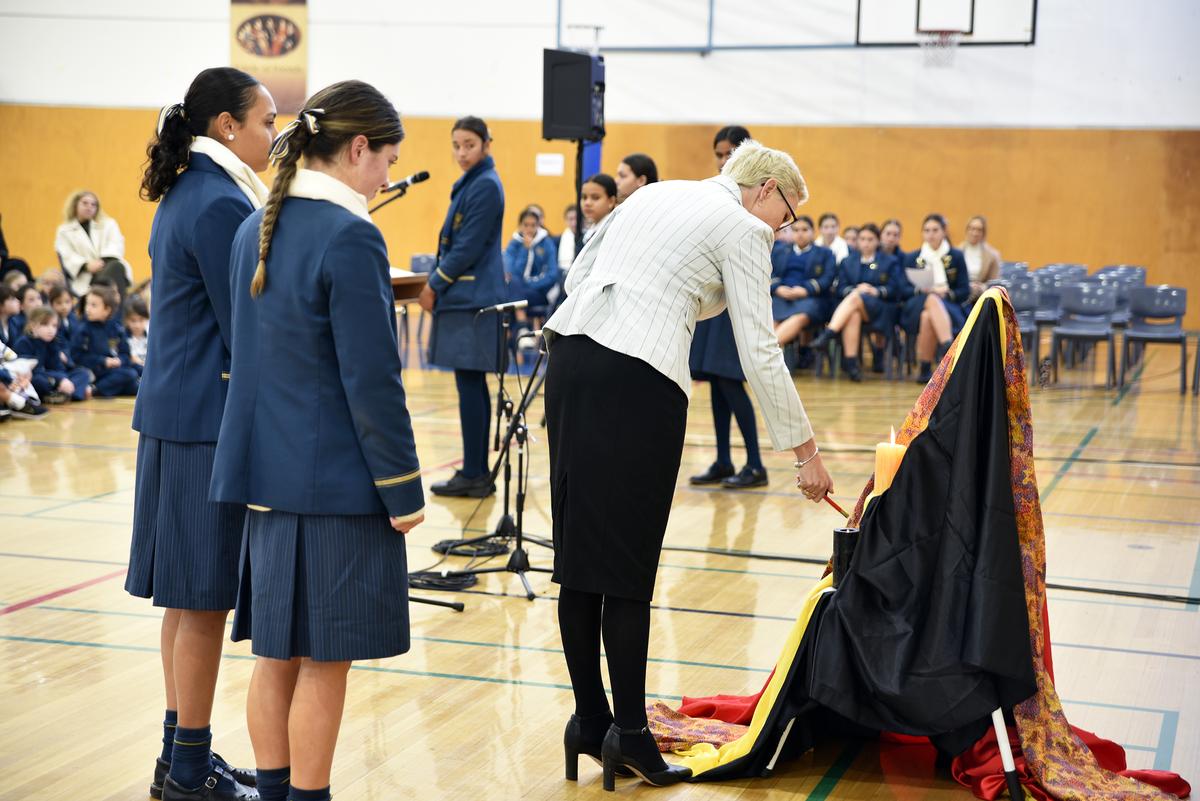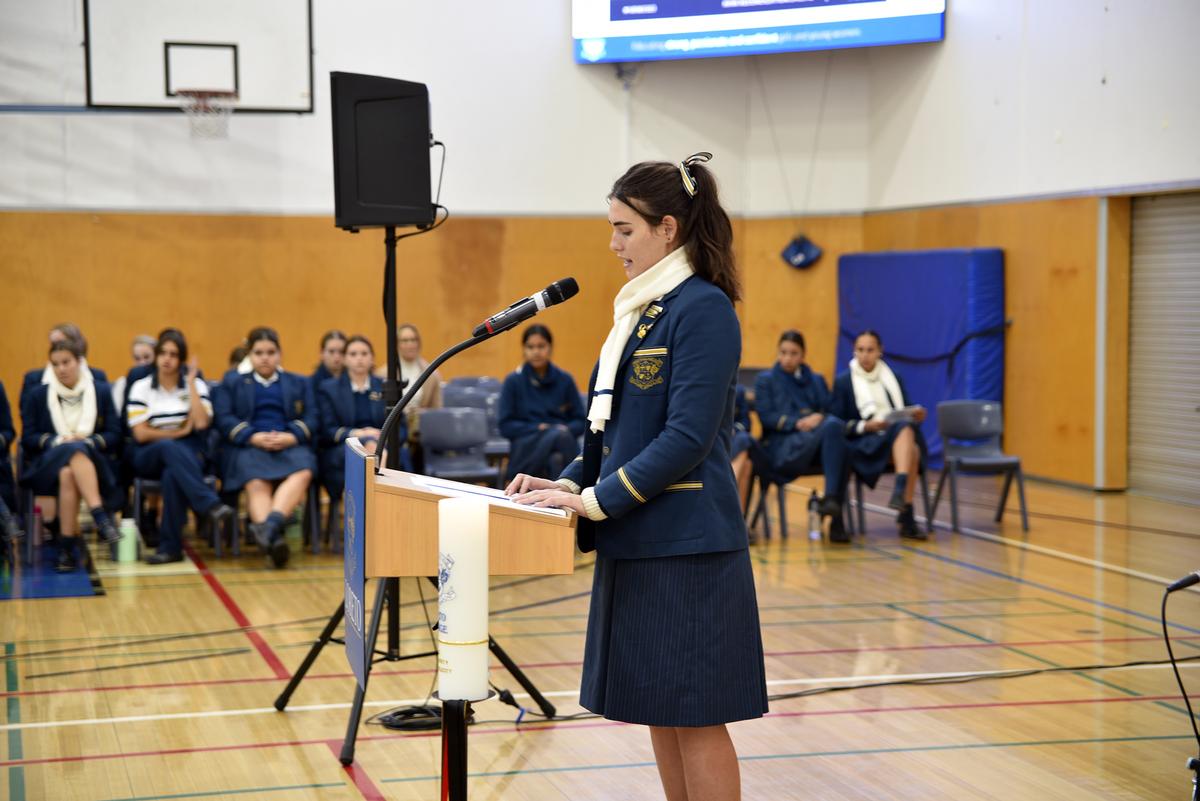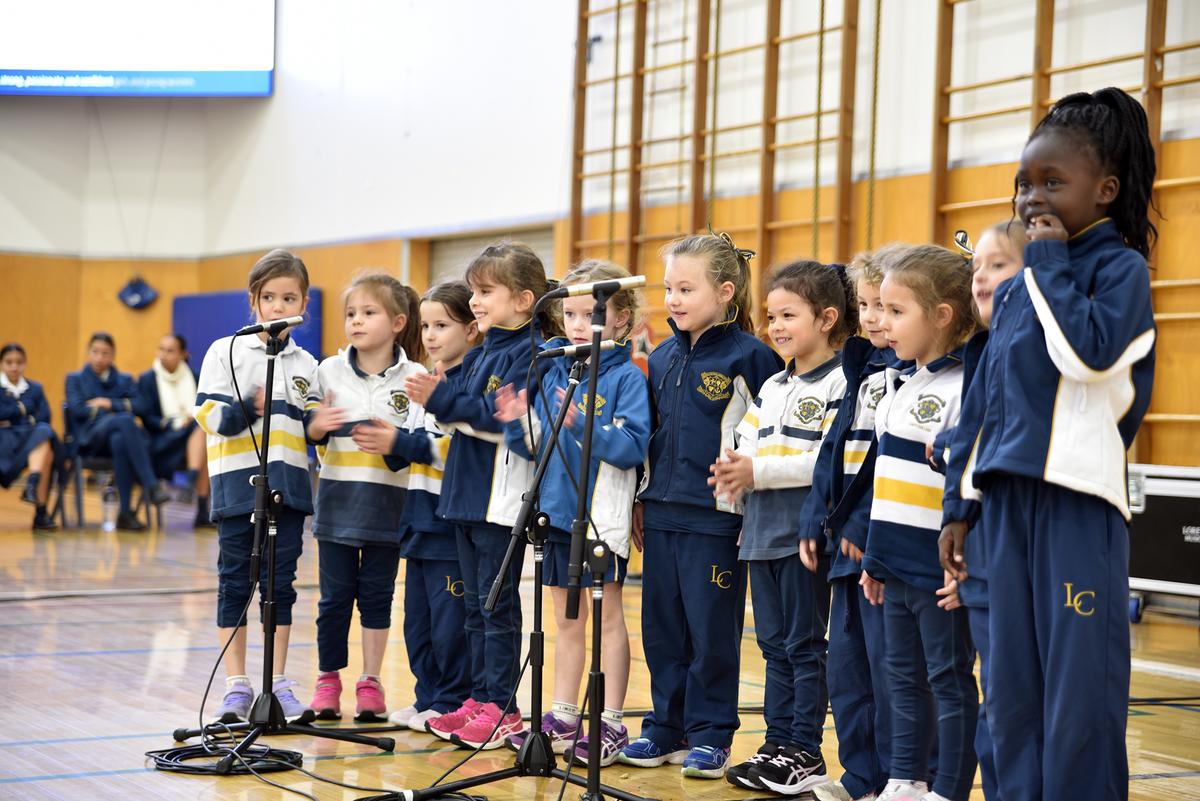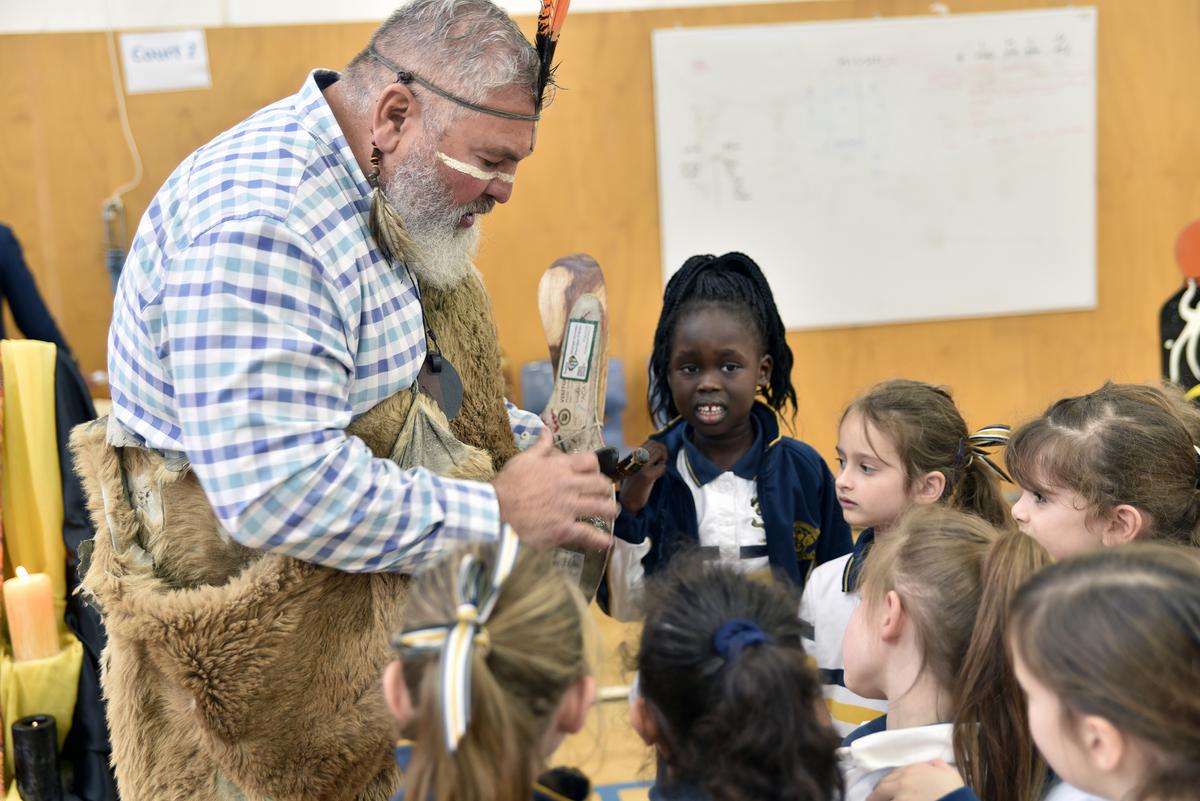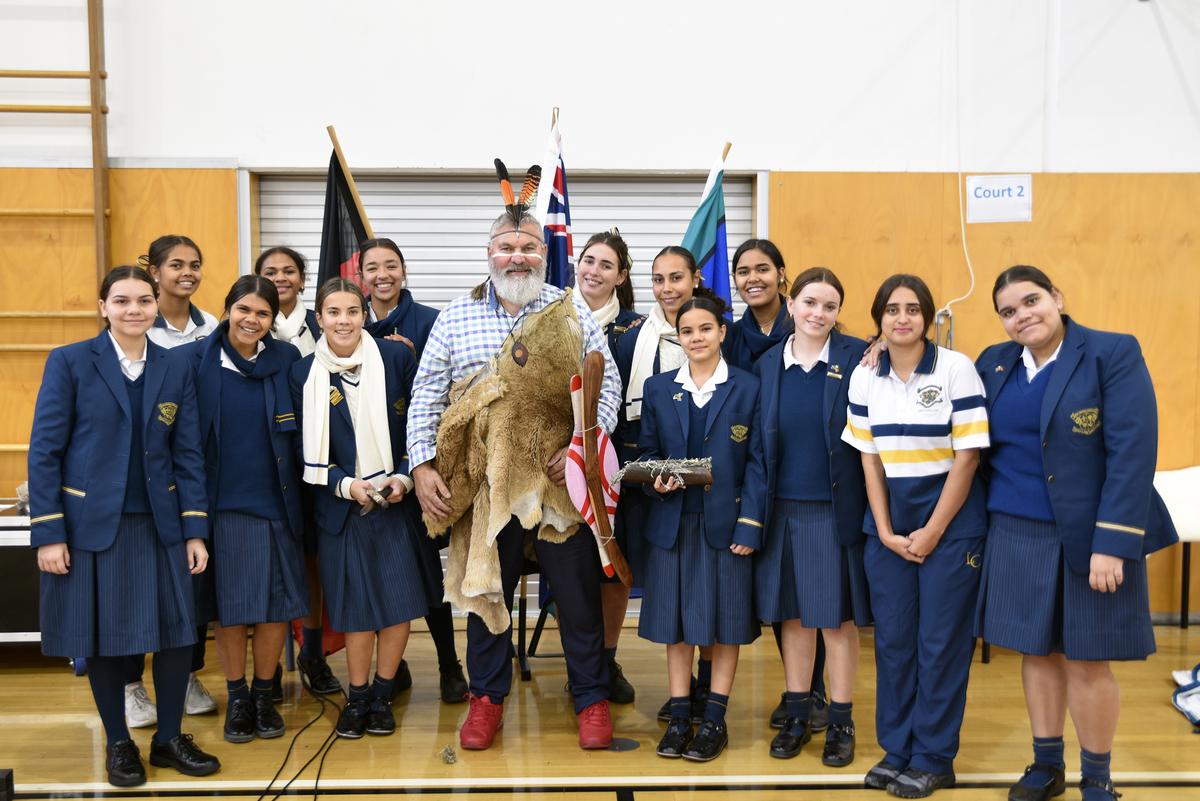Faith and Mission
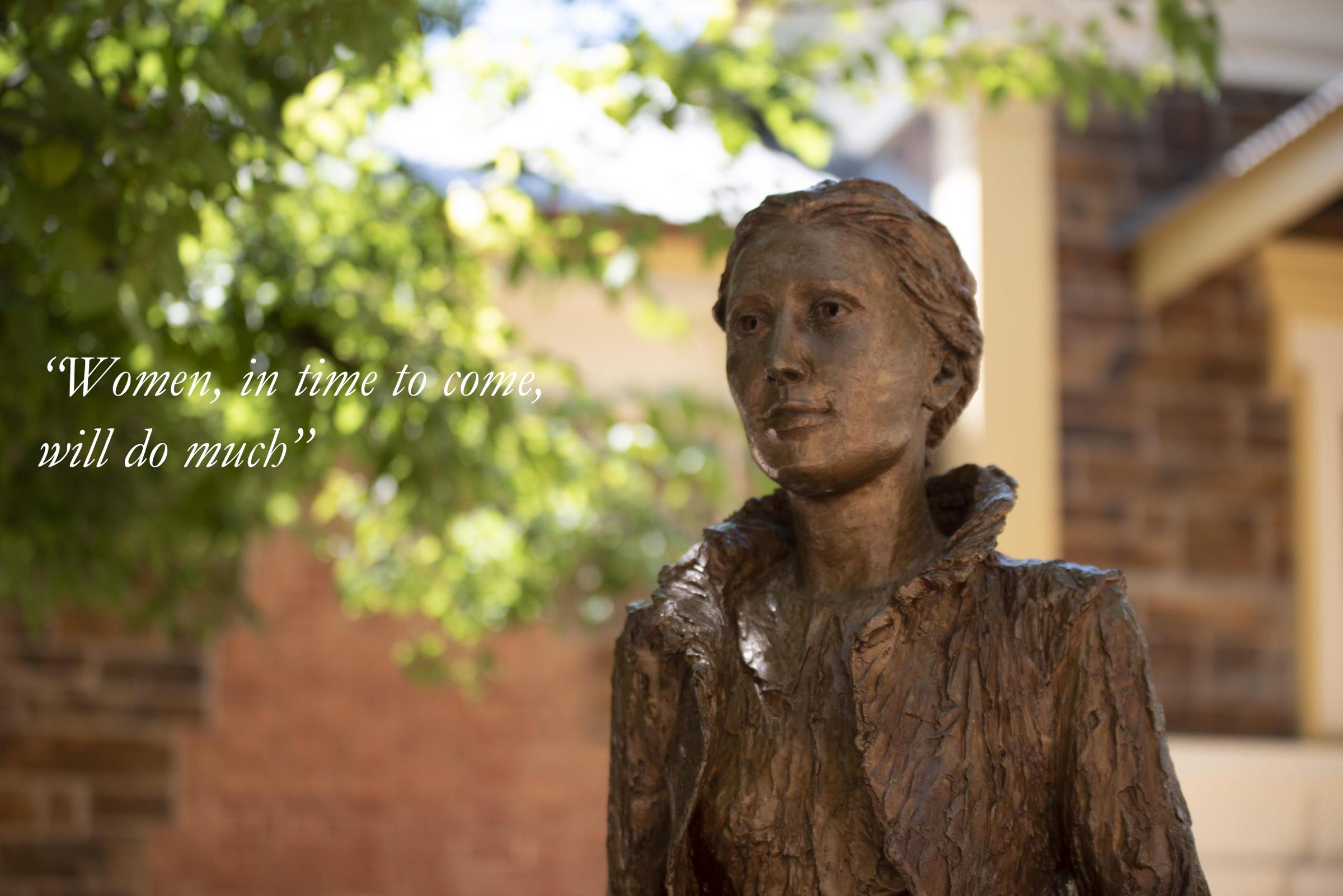
From the Mission Team
Our Liturgical Life
As we reflect on the recent weeks, our school community has come together to celebrate and honour significant events that hold deep meaning for us all.
Our Mother's Day Liturgy was lead by our reception classes, and was a time to appreciate and recognise the unconditional love and sacrifices of mothers. The liturgy was heartfelt and showcased the love and gratitude we have for these extraordinary women in our lives. Through prayers, songs, and words of appreciation, we acknowledged the immeasurable impact mothers and mother figures have on us. During this liturgy our students also received their certificates for the Sacrament of Reconciliation. We look forward to journeying with the girls as, they prepare for their next sacraments.
In line with our commitment to reconciliation and acknowledging the importance of National Sorry Day, our Year 6 Students lead a liturgy to remember and reflect on the history, resilience, and culture of Indigenous Australians.
Furthermore, our Year 10 students participated in a special Mass in observance of Laudato Si week. Inspired by Pope Francis' encyclical on the environment, the students sought to deepen their understanding of ecological stewardship and the urgency to protect our common home. The Mass provided a platform to pray, reflect, on our commitment to sustainable practices.
These events exemplify our school's dedication to nurturing a compassionate and inclusive environment where we can gather as a community, celebrate our shared values, and learn from one another. We thank our students, staff, and parents and Fr Chris Jenkins for their active participation in the liturgical life of the school.
Reconciliation Week Assembly
As we reflect on the recent Reconciliation Week assembly, we are reminded of the power of unity and understanding as we celebrate the rich diversity of our school community. This special event provided an opportunity for us to come together, learn from one another, and honour the cultures and histories of Australia's First Nations peoples.
The assembly commenced with a heartfelt Welcome to Country, performed by a respected Indigenous Elder, Uncle Mickey O’Brien. Following the Welcome to Country, a Smoking Ceremony took place. This ancient practice serves as a reminder of the deep connection between people, land, and spirit.
During the assembly, our Indigenous Leader Tahnee shared her personal journey of cultural discovery and identity. Her courageous storytelling shed light on the complexities and beauty of her heritage, inspiring all to embrace their own unique identities and celebrate the diversity within our school community.
The assembly also showcased the transformative experiences of our students who recently embarked on the Cape York immersion trip. Through their captivating presentations, they shared the profound impact of their encounters with Indigenous communities, fostering mutual respect and understanding.
The girls spoke about the power of language and our students proudly showcased their newfound linguistic skills, and our reception students sang “Niina Marni” for the whole assembly – Well Done Girls!
As we reflect on this inspiring assembly, we are reminded of the significance of Reconciliation Week. It is a time for us to embrace and acknowledge the histories, cultures, and contributions of Aboriginal and Torres Strait Islander peoples. Together, we stand committed to fostering a spirit of reconciliation, respect, and unity within our school community.
You can read Tahnee’s speech here:
Hello, as some of you girls might know my name is Tahnee Henderson. Today I am here to speak about why reconciliation is important to me.
Coming into this role as the Indigenous leader of our college, I knew that I would face many challenges, however, my strong love and passion for my Aboriginal culture allowed me to face these challenges and to utilise my position as an executive member to be a voice for my fellow Indigenous girls.
So let me tell you a bit about me;
I am a boarding student from Darwin, which is in the Northern territory, however, I am originally from the Wulungjuwla tribe which is on my mother's side. The Wulungjuwla tribe is from the Tiwi Islands which is located 2 hours north of Darwin in the Timor Sea. On my father's side, my Aboriginal heritage is from the Anmatjere tribe. This tribe is from Ti-Tree which is located 200km north of Alice Springs. My Aboriginal heritage comes from both sides of my family. Although they are both Aboriginal heritages, they are both different as one has strong links to the sea, while the other has a strong link to the desert. This shows that even though there are many aboriginal tribes within Australia, they are all very different and unique.
I’d like to tell you how I connect with my identity and my culture. Every year over the holidays, my family and I visit my mother's homeland. In a small community with little phone reception, we spend most of our days fishing, hunting in the mangroves for Gigodinga and Prunga, and connecting with each other through storytelling about our people and the land. When I am back in Adelaide for school, I find that I connect with my culture through spending time with the other Indigenous girls in the boarding house and at school.
I was given opportunity to move away from home to gain an education at Loreto, where I started in 2022. I believe that education is important and vital to all people, whether you are Indigenous or non-Indigenous.
Unfortunately, in Australia, the academic gap between Indigenous and non-Indigenous peoples remains critical. Every day, all of us here in this assembly, are given the opportunity of attending a school that has the proper resources and access to education. However, many children within remote communities around Australia have limited resources and facilities for education. It is found that the national school attendance rate was 82% for Indigenous students, in comparison to the attendance rate for non-Indigenous students which is 93%. This gap has remained for the past five years.
Milikapiti is a small community on the Tiwi Islands with a population of 3,000 people, this community is the one of which I visit every holiday and where my cousins, aunties and uncles on my mother's side live. In this community, there is only a primary school. Year 6’s, can you imagine if this was your last year at school, and the only way for you to get a secondary education was to move away from your home and your family to a place that is so different to what you are used to. This can be a culture shock to kids as they are in a different environment, speaking a different language, eating different food, and living with different people.
School is a thing that most of us take for granted, but this should be something we should be grateful for as there are children that wishing they could be in your shoes today with an education accessible in their own community.
The first important step in closing the gap between Indigenous and non-Indigenous peoples in education is the conversations. It is raising awareness and informing people on the issue and asking questions as to why there aren't equal opportunities for every child in Australia.
Taking grasp of this opportunity has not only opened many pathways for me in life but has also made me realise what I am capable of and how much potential I have. Although I feared moving away from home, this opportunity has benefited me academically and has also inspired me to become a role model for other Indigenous children within my community.
Coming to this school as a born and raised Darwin girl who was used to only two seasons, the wet heat and the dry heat, I had second choices about moving to the other side of the country away from my friends, family and home. However, looking back on it now, I will forever be grateful for the amazing opportunity I have been given.
In conclusion, reconciliation holds the promise of a just, harmonious, and brighter future. Reconciliation is not only a word or a superficial act, but it also represents a change of hearts, minds, and relationships. Whether it is closing the gap between Indigenous and non-Indigenous peoples or having a conversation. And as the future generation of leaders, this starts with us.
Thank you.
Community News - St Ignatius Norwood Parish Choir
Parents and friends are invited to join the choir to sing or play an instrument for Sundays 21st. and 28th. May, 2023. Practice begins at 9-40am for the 10am Mass. An additional fifteen minutes after Mass will help us prepare for the coming Pentecost Sunday.
Leading up to St. Ignatius feast-day at the end of July, singers, instrumentalists and, in particular, brass players of all kinds are needed for a special 10am Mass celebration. Please encourage those players you know to make this a truly special Mass.
Further information can be accessed by ringing Rosemary on 0417 800 538.

